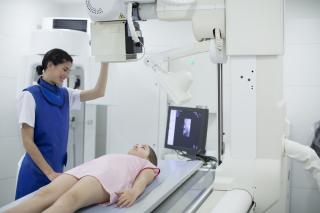Following a review at NHS children's hospitals, the Care Quality Commission (CQC) has identified IR(ME)R weaknesses and good practice in specialist paediatric radiology services.
The review of 12 sites between April 2017 and March this year found:
- In some cases, a lack of up to date or incomplete written procedures or procedures that did not always align with clinical practice.
- Most services had detailed training records for radiographers that clearly described how they had been assessed as competent to use each piece of imaging equipment. However, this was not always the case for some other staff groups that may be required to operate imaging equipment.
- Compliance with equipment quality assurance requirements varied, with a failure to perform regular equipment testing at some trusts.
- Guidelines for referring patients were not always in place or made available to all referrers who used their services.
- Many radiology staff felt they had limited opportunity to share areas of good practice with other departments to help improve radiation protection across the hospital.
The Society's professional officer for clinical imaging, Lynda Johnson, responded to the CQC's concerns about sharing good practice saying, "We have the CoR Radiation Protection Glasscubes group which is a free virtual forum for members to share expert practice and gain advice in a safe environment. Please email me to join.
"We would also strongly encourage service leads to consider the formation of imaging optimisation teams."
As well as paediatric radiology services, the inspections also included the wider services for adults where there were trust wide concerns, or where children’s and adult services were not distinct. Inspectors found that individuals who may be pregnant or breastfeeding were not being identified consistently.
The report says, "All the hospitals had a procedure in place, but the quality and type of procedural steps varied. We also commonly found that staff were often unaware of the correct procedure to follow. The content of the procedures themselves varied between different employers. For example, some procedures required staff to follow well-established professional guidance for low-dose radiological procedures and others just questioned the individual about whether they thought they might be pregnant or not, irrespective of the date of their last menstrual cycle."
